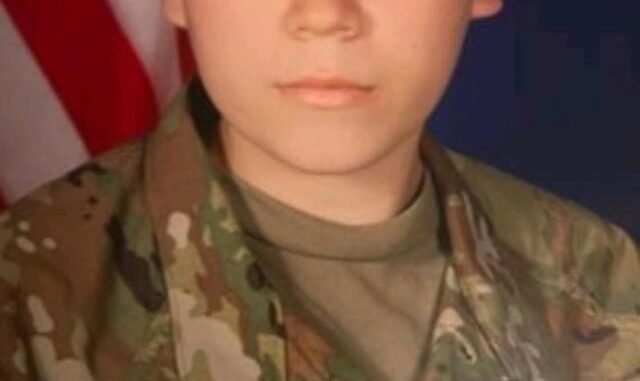
Weikel’s death was discovered by Military.com through two obituaries, one published in her hometown newspaper in New York state and a brief obituary posted by a funeral home in Killeen, Texas, outside the base walls.
She died just one day after her 29th birthday.
Weikel’s death was initially reported as a suicide off-base, but the circumstances of the incident are still being investigated, a person familiar with the case told Military.com.
Lt. Gen. Sean Bernabe, the commander of III Armored Corps and the top Army official at Fort Hood, held a press conference on March 17, but neither he nor a subsequent press release disclosing Basaldua’s death made mention of a second soldier dying. Bernabe took only a few questions from the media at that press conference, but declined to provide details about Basaldua’s death.
That death and allegations of harassment immediately drew parallels to Guillén, a 20-year-old soldier at Fort Hood who was sexually harassed and murdered in April 2020. The case caused a national outcry, exposed systemic problems of sexual assault at the base and throughout the service, and resulted in federal laws overhauling military criminal justice.
In December 2020, more than a dozen Fort Hood officials were fired or suspended following a damning investigation known colloquially throughout the Army as “The Fort Hood Report.” The findings uncovered systemic failures at the installation tied to safety for soldiers, particularly female service members. It served as a flashpoint for the service and how it’s publicly perceived and was intended to change how commanders treat their formations.
Since then, the installation and its respective commanders have become increasingly cloistered, according to multiple officials at the base who spoke to Military.com on the condition of anonymity. Most shared the sentiment that the report and surrounding media pressure were so cataclysmic that the base has effectively gone into lockdown when it comes to communicating incidents with the public and the press.
When asked why Fort Hood officials, including Lt. Gen. Bernabe, did not inform the public that a second soldier had died, a spokesperson said Weikel’s death happened off-base. There is no Army policy forbidding the service from speaking to the public about deaths that occur off military property.
“The death of Spc. Weikel was off-post, as a result, the Department of the Army Criminal Investigation Division (CID) and the Killeen Police Department are conducting a joint investigation into the death of Spc. Weikel,” Lt. Col. Tania Donovan, a III Armored Corps spokesperson, told Military.com in a statement. “As this is an ongoing investigation, no further information will be released at this time.”
Donovan added there is no policy which Fort Hood discloses when a soldier assigned to the base dies, saying those situations are “case by case.”
Army leaders and their public affairs teams are generally forbidden from withholding information that may embarrass or otherwise lead to bad press for the service.
Sean Timmons, a Texas-based managing partner for the Tully Rinckey law firm and a former judge advocate general at Fort Hood, told Military.com in an interview Monday that the revelation of a second death the same day as Basaldua was “concerning,” but may not have been immediately shocking to base leaders.
“The fact that two happened within a close proximity, honestly, probably didn’t even raise any eyebrows for them, because suicide is such a common thing that happens at Fort Hood,” Timmons told Military.com. “It’s very, very problematic.”
A letter was signed by Sens. Kirsten Gillibrand, D-N.Y.; Chuck Grassley, R-Iowa; Mazie Hirono, D-Hawaii; and Elizabeth Warren D-Mass., and sent to the commander of Fort Hood last week, asking for transparency for Basaldua’s death and a thorough investigation into the circumstances.
“We are writing to express our deep concern regarding the circumstances surrounding Private Ana Basaldua Ruiz’s death,” the April 11 letter said. “Once again, Fort Hood has failed the young women who stand up to serve our country and entrust themselves to the Army’s care.”
Leave a Reply